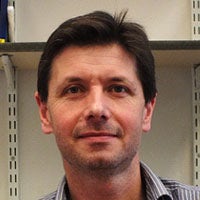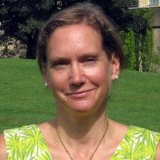Daniel’s research includes studying microwave activation of catalytic processes, synthesis of functional oxides, dielectric spectroscopy and new methods using magnetic resonance phenomena.
Jonathan Bartley
Jonathan’s expertise covers heterogeneous catalysis and the design and synthesis of mixed oxide materials for use as catalysts and supports for different reactions. His research is mainly focussed on oxidation reactions including developing microwave catalysis to remove pollutants from water.
philip davies

Philip’s primary interest is understanding how a surface can modifies or direct a chemical reaction. Work has been concerned with understanding the reactions of molecules at surfaces characterised both chemically and structurally at the atomic level. Other aspects of our work include studying the mechanism of photocatalysis.
David Leak
David work on microbial metabolic engineering for production of chemicals from renewables, and bioprocessing for biopharmaceutical production. David is also interested in applied biocatalysis.
Christopher Frost
Christopher’s research involves creating new chemical tools for catalysis and biosensing.
Ben Ward
Ben is an inorganic chemist with an interest in organometallic chemistry and homogeneous catalysis, especially when applied to polymer formation and degradation. He has particular expertise in the development and understanding of catalysts using Earth-abundant metals, using a combination of experimental and computational methods.
Emma Emanuelsson Patterson
Emma analyses, optimises and designs chemical, biochemical and photocatalytic reactions and reactors. Her work combines in-situ reaction analysis techniques with traditional reaction investigation methodologies and mathematical analysis. In combination with reactor design, this allows for the development of novel and environmentally sustainable processes. Emma’s research includes 3D printing to develop an efficient, portable and low-cost continuous system for the treatment of contaminated drinking water. Emma also works in the optimisation of immobilisation protocols; investigation of reaction kinetics both experimentally and theoretically; reaction design and application of microbial tools (such as fluorescence in-situ hybridisation) applicable to wastewater treatment, food and the chemical and pharmaceutical industries.






